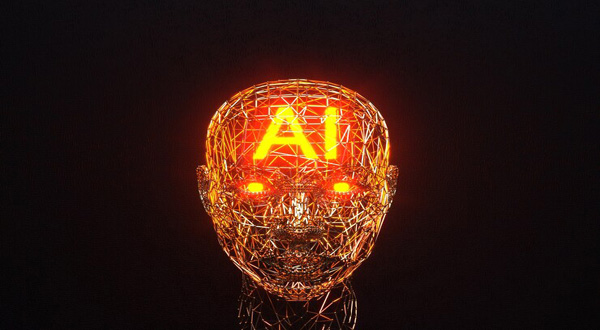What is the Best Definition of Artificial Intelligence by Authors?
- Update Time : Monday, March 4, 2024
- 15 Time View

What is the Best Definition of Artificial Intelligence by Authors?: In today’s tech-savvy world, the term “artificial intelligence” (AI) has become increasingly prevalent. But what exactly does it mean? Different authors offer varied perspectives on this fascinating topic. Let’s delve into the diverse definitions provided by experts in the field.
Introduction to Artificial Intelligence
Artificial intelligence, often abbreviated as AI, refers to the simulation of human intelligence in machines programmed to mimic cognitive functions like learning and problem-solving. It encompasses a broad range of technologies, including machine learning, natural language processing, and robotics.
Understanding AI: A Brief Overview
Artificial intelligence is a branch of computer science that aims to create intelligent machines capable of performing tasks that typically require human intelligence. These tasks can include understanding natural language, recognizing patterns, making decisions, and even learning from experience.
Machine Learning: The Backbone of AI
Machine learning is a subset of AI that focuses on the development of algorithms enabling computers to learn from and make predictions based on data. Instead of being explicitly programmed, these systems improve their performance over time through experience.
Natural Language Processing (NLP): Communicating with Machines
Natural language processing allows computers to understand, interpret, and generate human language in a way that is both meaningful and useful. From chatbots to language translation, NLP plays a crucial role in various AI applications.
Robotics: Bringing AI to Life
Robotics involves the design, construction, operation, and use of robots to perform tasks in the physical world. AI-powered robots are capable of autonomously completing tasks ranging from simple assembly line operations to complex surgical procedures.
Read More: Understanding Artificial Intelligence in Computer Science Engineering
The Best Definitions of Artificial Intelligence by Authors
Alan Turing: The Turing Test
Alan Turing, a pioneering mathematician and computer scientist, proposed the Turing Test in 1950 as a criterion for determining a machine’s ability to exhibit intelligent behavior equivalent to, or indistinguishable from, that of a human. According to Turing, if a machine could successfully imitate human responses in a conversation, it could be considered artificially intelligent.
John McCarthy: The Father of AI
John McCarthy, an American computer scientist, coined the term “artificial intelligence” in 1956 during the Dartmouth Conference, marking the birth of the field. He defined AI as “the science and engineering of making intelligent machines.”
Marvin Minsky: The Society of Mind
Marvin Minsky, a cognitive scientist and co-founder of the MIT AI Laboratory, introduced the concept of The Society of Mind, suggesting that intelligence arises from the interaction of numerous simple processes within the brain, rather than a single, unified entity.
Herbert Simon: Problem-Solving Machines
Herbert Simon, an American economist and computer scientist, viewed artificial intelligence as the simulation of human problem-solving behavior. He believed that intelligent behavior could be achieved through the systematic application of rules and heuristics.
Stuart Russell & Peter Norvig: Rational Agents
Stuart Russell and Peter Norvig, authors of the popular AI textbook “Artificial Intelligence: A Modern Approach,” define AI as the study of agents that receive perceptions from their environment and perform actions to achieve goals.
Ray Kurzweil: The Age of Spiritual Machines
Ray Kurzweil, a futurist and inventor, envisions artificial intelligence as a stepping stone towards the age of spiritual machines, where intelligent machines will surpass human intelligence, leading to a convergence of biology and technology.
Nick Bostrom: Superintelligence
Nick Bostrom, a philosopher and author, explores the potential risks and benefits of superintelligent AI in his book “Superintelligence: Paths, Dangers, Strategies.” He defines artificial superintelligence as an intellect that greatly exceeds the cognitive performance of humans in virtually all domains of interest.
Read More: Unveiling the Wonders of Artificial Intelligence in Computers
Conclusion: The Evolving Definition of Artificial Intelligence
As we’ve explored various definitions of artificial intelligence by esteemed authors, it’s evident that the concept continues to evolve alongside technological advancements. From Turing’s pioneering test to Bostrom’s cautionary outlook, AI remains a dynamic field with boundless possibilities and ethical considerations.
FAQs (Frequently Asked Questions)
- What are the main types of artificial intelligence?
Artificial intelligence can be categorized into three main types: narrow AI, general AI, and superintelligent AI.
- How does artificial intelligence benefit society?
Artificial intelligence has the potential to revolutionize various industries, including healthcare, transportation, finance, and education, by enhancing efficiency, decision-making, and problem-solving capabilities.
- What are the ethical concerns surrounding artificial intelligence?
Ethical concerns related to artificial intelligence include issues of privacy, bias in algorithms, job displacement, autonomous weapons, and the existential risk posed by superintelligent AI.
- Can artificial intelligence ever achieve human-level intelligence?
While AI has made significant strides in mimicking certain aspects of human intelligence, achieving true human-level intelligence remains a complex and ongoing challenge.
- How can individuals prepare for the impact of artificial intelligence on the workforce?
To adapt to the changing landscape shaped by AI, individuals can focus on acquiring skills that complement automation, such as critical thinking, creativity, emotional intelligence, and technological literacy.
In conclusion, artificial intelligence continues to captivate the imagination of researchers, philosophers, and enthusiasts alike, offering endless possibilities and raising thought-provoking questions about the nature of intelligence and its implications for society.












